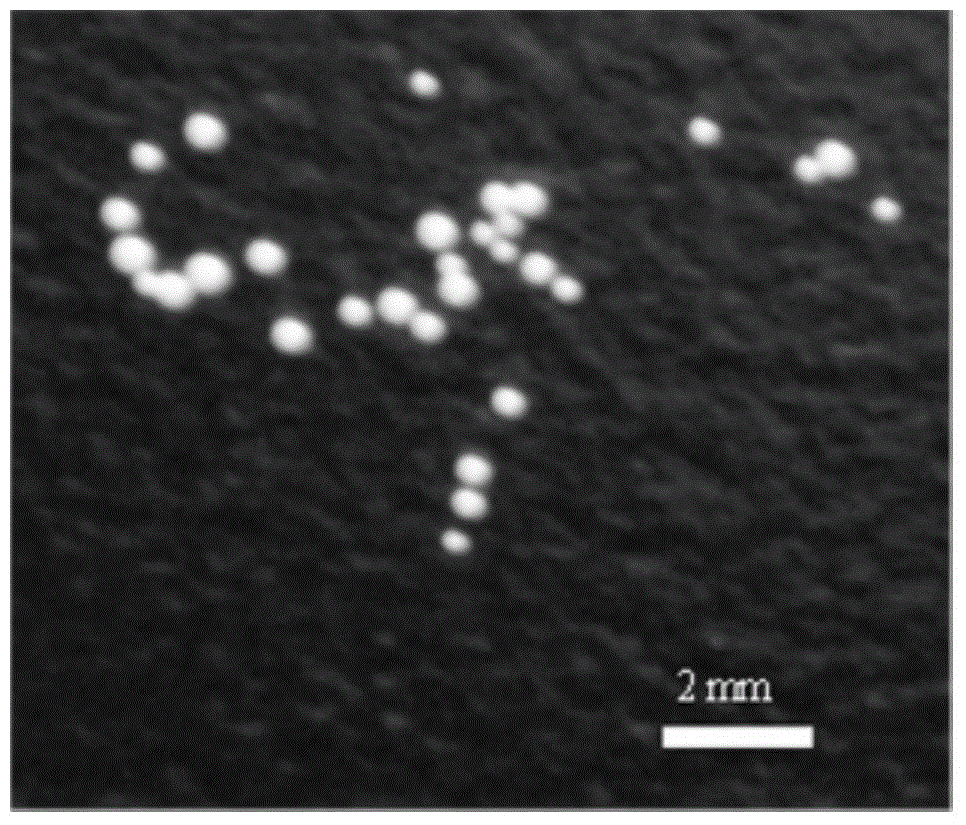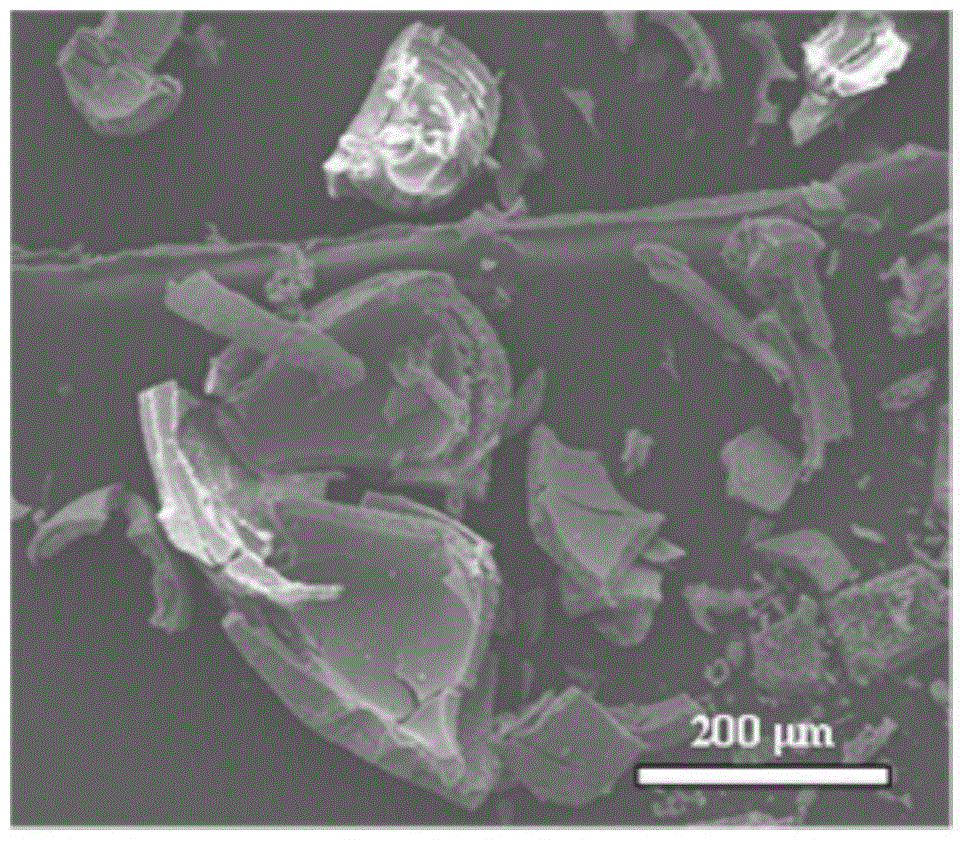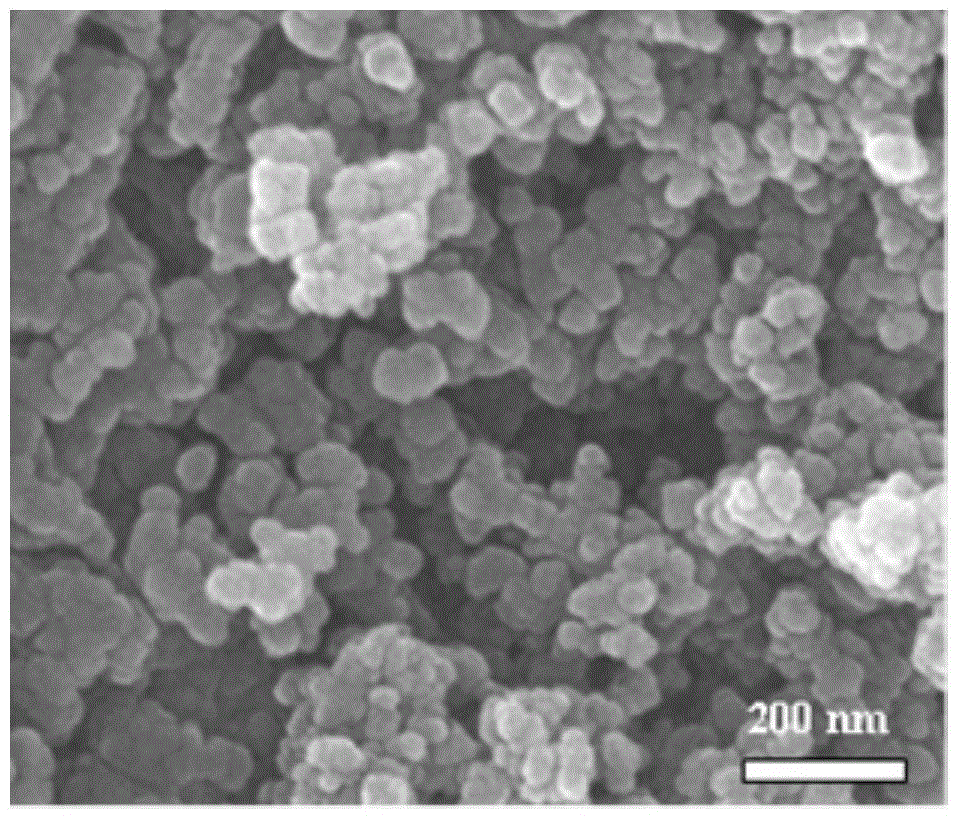Preparation method of hollow titanium dioxide millimeter spheres consisting of nanoparticles
A nanoparticle, titanium dioxide technology, applied in the direction of titanium dioxide, titanium oxide/hydroxide, etc., can solve the problems of difficult separation and low recovery rate
- Summary
- Abstract
- Description
- Claims
- Application Information
AI Technical Summary
Problems solved by technology
Method used
Image
Examples
specific Embodiment approach 1
[0027] Specific embodiment one: the preparation method of the hollow titania millimeter sphere composed of nanoparticles in this embodiment is carried out according to the following steps:
[0028] 1. Weigh the titanium source, tetrapropylammonium hydroxide aqueous solution with a concentration of 50% by volume, deionized water and anion exchange resin, wherein the mass ratio of the titanium source to the tetrapropylammonium hydroxide aqueous solution is 1:1~5 , the mass ratio of titanium source to deionized water is 1:5-30, the mass ratio of titanium source to anion exchange resin is 1:2-15;
[0029] 2. Mix the tetrapropylammonium hydroxide aqueous solution weighed in step 1 and deionized water evenly to obtain a mixed solution, and then add the titanium source to the mixed solution under stirring at room temperature, and then continue to stir for 1~ 6h, add anion exchange resin, stir for 6-24h, and obtain the precursor solid-liquid mixture;
[0030] 3. Put the precursor sol...
specific Embodiment approach 2
[0035] Embodiment 2: The difference between this embodiment and Embodiment 1 is that the titanium source in Step 1 is tetrabutyl titanate or tetraisopropyl titanate. Others are the same as in the first embodiment.
specific Embodiment approach 3
[0036] Embodiment 3: This embodiment differs from Embodiment 1 or Embodiment 2 in that: the room temperature in step 2 refers to 15°C to 30°C. Others are the same as in the first or second embodiment.
PUM
| Property | Measurement | Unit |
|---|---|---|
| particle size | aaaaa | aaaaa |
| size | aaaaa | aaaaa |
| size | aaaaa | aaaaa |
Abstract
Description
Claims
Application Information
 Login to View More
Login to View More - R&D
- Intellectual Property
- Life Sciences
- Materials
- Tech Scout
- Unparalleled Data Quality
- Higher Quality Content
- 60% Fewer Hallucinations
Browse by: Latest US Patents, China's latest patents, Technical Efficacy Thesaurus, Application Domain, Technology Topic, Popular Technical Reports.
© 2025 PatSnap. All rights reserved.Legal|Privacy policy|Modern Slavery Act Transparency Statement|Sitemap|About US| Contact US: help@patsnap.com



